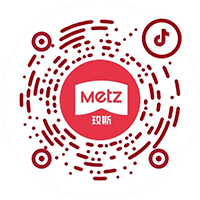Why Choosing Animal Protein Dog Food Can Transform Your Pet's Health
Why Choosing Animal Protein Dog Food Can Transform Your Pet's Health
Understanding the Importance of Protein in Your Dog's Diet
When it comes to a dog's diet, **protein** is not just an ingredient; it's the foundation of their overall health. Dogs, being omnivores, require a balanced diet that includes essential nutrients. Among these, protein plays a crucial role, especially **animal protein**,
2024/12/26
Why Choosing Animal Protein Dog Food Can Transform Your Pet's Health
Understanding the Importance of Protein in Your Dog's Diet
When it comes to a dog's diet, **protein** is not just an ingredient; it's the foundation of their overall health. Dogs, being omnivores, require a balanced diet that includes essential nutrients. Among these, protein plays a crucial role, especially **animal protein**, which is derived from meat and fish. This section will explore why protein is vital for your canine companion.
The Role of Protein in Canine Nutrition
Animal protein provides essential amino acids that dogs require for various bodily functions. These amino acids are crucial for muscle growth, tissue repair, and the production of enzymes and hormones. A diet rich in animal protein ensures that your dog maintains a healthy body structure and performs optimally in their daily activities.
Benefits of High-Quality Animal Protein
High-quality animal protein is packed with nutrients that are easily digestible. Unlike plant-based proteins, which may lack certain essential amino acids, animal protein provides a complete amino acid profile. This ensures your dog gets the necessary nutrition for **energy production**, **immune support**, and **overall vitality**.
The Connection Between Animal Protein and Dog Health
Research indicates that a diet rich in animal protein can significantly enhance your dog's health. Let’s delve into the specific health benefits associated with consuming animal protein dog food.
Improved Digestive Health
Animal protein is generally easier for dogs to digest compared to plant-based proteins. This improved digestibility means that your dog can absorb more nutrients from their food, leading to better health outcomes. A diet high in animal protein can also result in firmer stools and reduced gastrointestinal issues, providing a more comfortable experience for your pet.
Enhanced Skin and Coat Quality
A diet rich in animal protein can lead to improved skin and coat health in dogs. The fatty acids found in animal products, such as omega-3 and omega-6, play a critical role in maintaining skin moisture and coat shine. Dogs fed a high-quality animal protein diet often exhibit fewer skin allergies and irritations, leading to a healthier and more vibrant appearance.
Increased Energy Levels
Animal protein supplies the necessary energy that dogs require for their active lifestyles. Protein is more efficient than carbohydrates in providing energy, allowing your dog to engage in play, exercise, and daily activities without fatigue. This is particularly important for high-energy breeds that require more sustenance to stay active and vibrant.
Choosing the Right Animal Protein Dog Food
Not all animal protein dog foods are created equal. Selecting the right product for your pet is essential for achieving the maximum health benefits. Here are some factors to consider.
Read the Ingredient List Carefully
When browsing dog food options, scrutinize the ingredient list. Look for specific animal proteins, such as chicken, beef, or fish, listed as the primary ingredient. Avoid foods that contain vague terms like “meat meal” without specification, as these can indicate lower-quality sources.
Understand Your Dog's Unique Needs
Every dog is different; factors such as age, breed, and health status play a significant role in determining their dietary requirements. Consult with your veterinarian to establish the best animal protein sources tailored to your dog’s individual needs. For example, some dogs may require higher protein levels due to their activity levels or specific health concerns.
Consider Grain-Free Options
For dogs that may have grain sensitivities, grain-free animal protein dog food can be an excellent choice. These diets focus on high-quality proteins and often include alternative carbohydrate sources like sweet potatoes and peas.
Common Myths About Animal Protein Dog Food
There are several misconceptions regarding animal protein dog food that can lead to confusion. Let’s clarify some common myths.
Myth: All Proteins Are Created Equal
Many pet owners believe that all protein sources provide the same benefits. However, this is far from the truth. Animal protein offers a complete amino acid profile that plant proteins cannot match, making it a superior choice for dogs.
Myth: Higher Protein Equals Healthier Dogs
While protein is essential, more is not always better. Overly high protein content can lead to health issues, especially in certain breeds. It's essential to find a balanced diet that meets your dog's needs without excess.
Myth: Plant-Based Proteins Are Sufficient
Some pet owners opt for plant-based diets, thinking they are sufficient for their dogs. While dogs can derive some benefits from plant proteins, they often lack essential amino acids necessary for optimal health. Animal protein is essential for a well-rounded diet.
Impact of Animal Protein on Lifespan and Quality of Life
A diet high in animal protein can have a lasting impact on your dog's lifespan and overall quality of life. Studies indicate that dogs who consume balanced, protein-rich diets tend to live longer, healthier lives.
Preventive Health Benefits
A nutritious diet focused on animal protein can help in preventing several health issues, including obesity, diabetes, and joint problems. Proper nutrition supports the immune system, helping dogs fight infections and diseases more effectively.
Long-Term Effects on Aging
As dogs age, their nutritional needs change. A diet rich in animal protein can help maintain muscle mass and vitality in senior dogs, contributing to a better quality of life as they grow older. This is particularly crucial for maintaining mobility and energy levels.
Frequently Asked Questions
1. Can I mix animal protein dog food with home-cooked meals?
Yes, you can mix animal protein dog food with home-cooked meals. However, ensure that the overall diet meets your dog’s nutritional requirements. Consult with a veterinarian for guidance.
2. How can I tell if my dog is allergic to animal protein?
Symptoms of food allergies can include itching, gastrointestinal distress, and skin irritations. If you suspect an allergy, consult your veterinarian for proper testing and dietary recommendations.
3. Are all animal protein sources safe for dogs?
Most animal proteins are safe for dogs, but some, like certain fish or raw meat, can pose risks if not sourced correctly. Always choose high-quality, reputable brands and consult your veterinarian.
4. How much protein does my dog need daily?
The protein requirement varies by breed, age, and activity level. On average, adult dogs require around 18-25% protein in their diet. Consult with your veterinarian to determine your dog’s specific needs.
5. Is animal protein dog food suitable for puppies?
Yes, puppies require higher protein levels for growth and development. Look for puppy-specific formulations that ensure they receive the necessary nutrients for healthy growth.
Conclusion
Choosing animal protein dog food can significantly transform your pet’s health, enhancing their energy levels, promoting a healthy coat, and supporting overall well-being. By understanding the importance of protein in your dog’s diet and selecting high-quality animal protein sources, you can ensure that your furry friend lives a long, happy, and healthy life. Always prioritize your dog’s unique needs and consult with a veterinarian to create the best dietary plan tailored to their health requirements. Investing in your dog’s nutrition is investing in their happiness and longevity.
Key words:
Previous Page:
Contact Us
Address:
No. 22, Jingxing Road, Economic and Technological Development Zone, Nantong, Jiangsu Province.
E-mail:
panghuiqiang@metzpet.com
Contact Phone:
+86-18862996617














